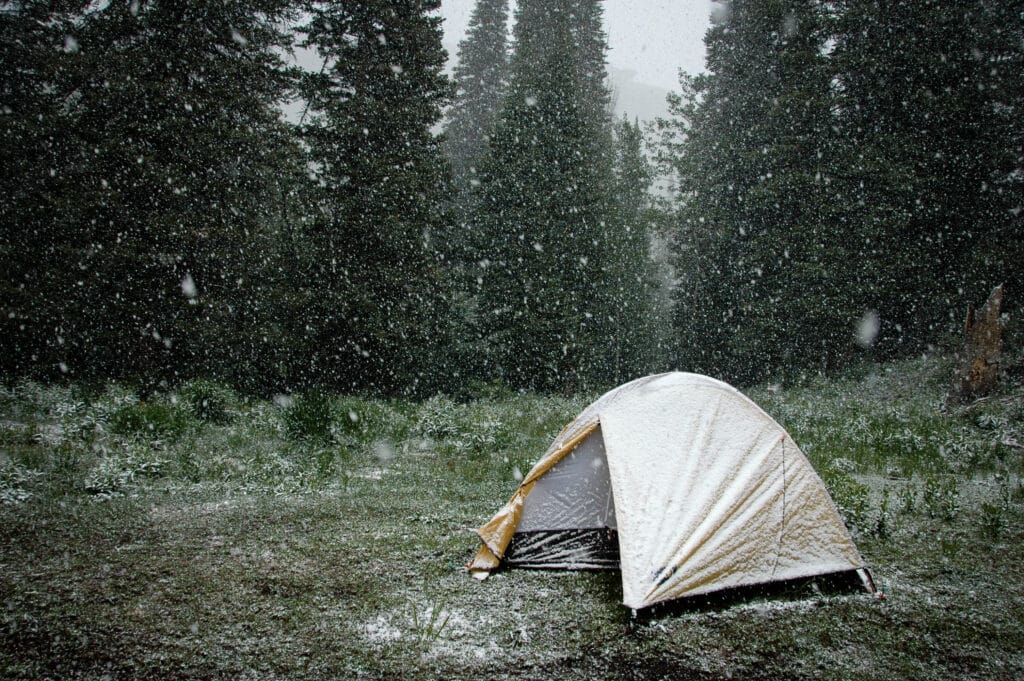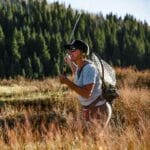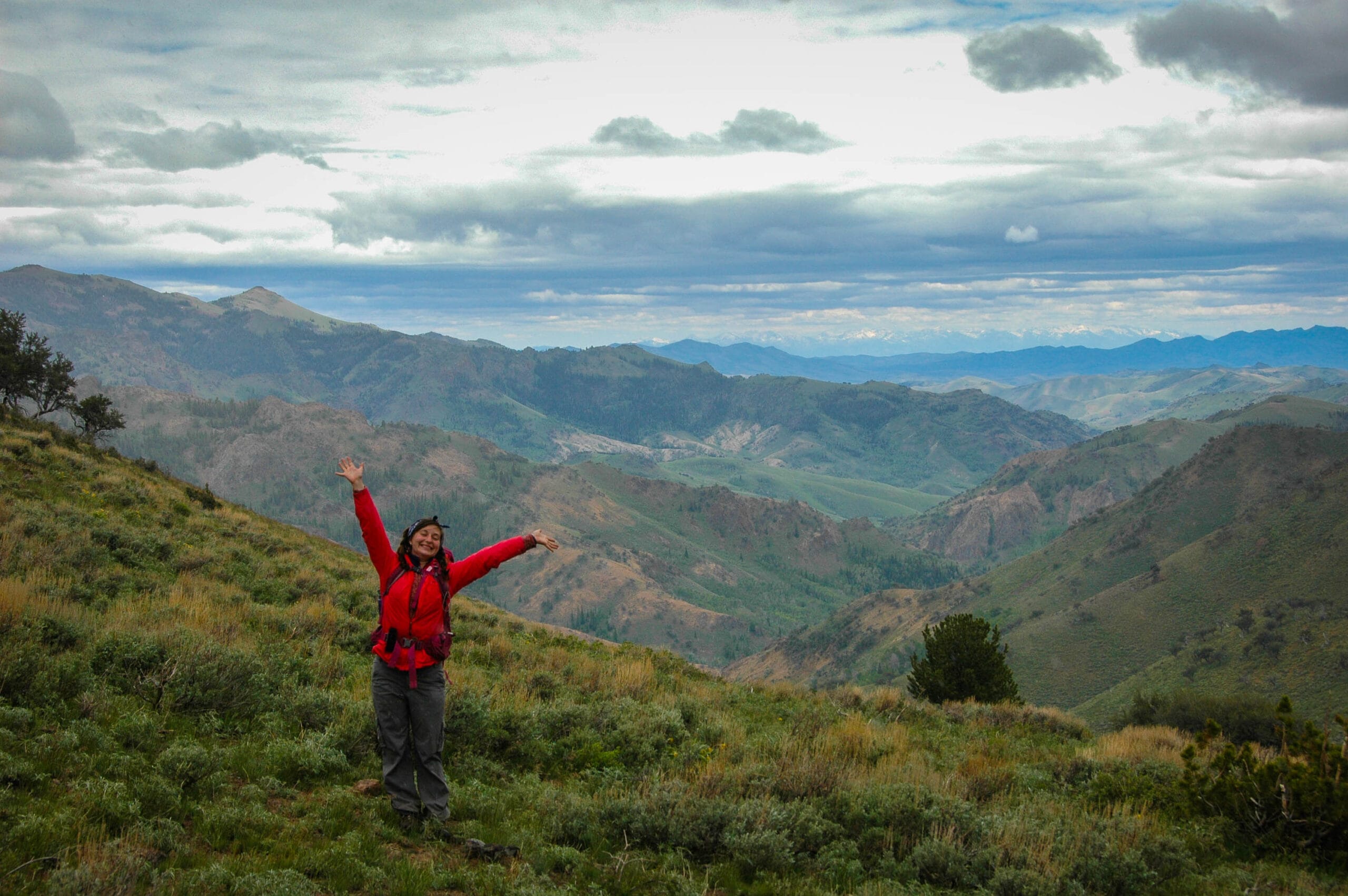Sarah Baker interned twice for TU before moving on in her own successful career in fisheries
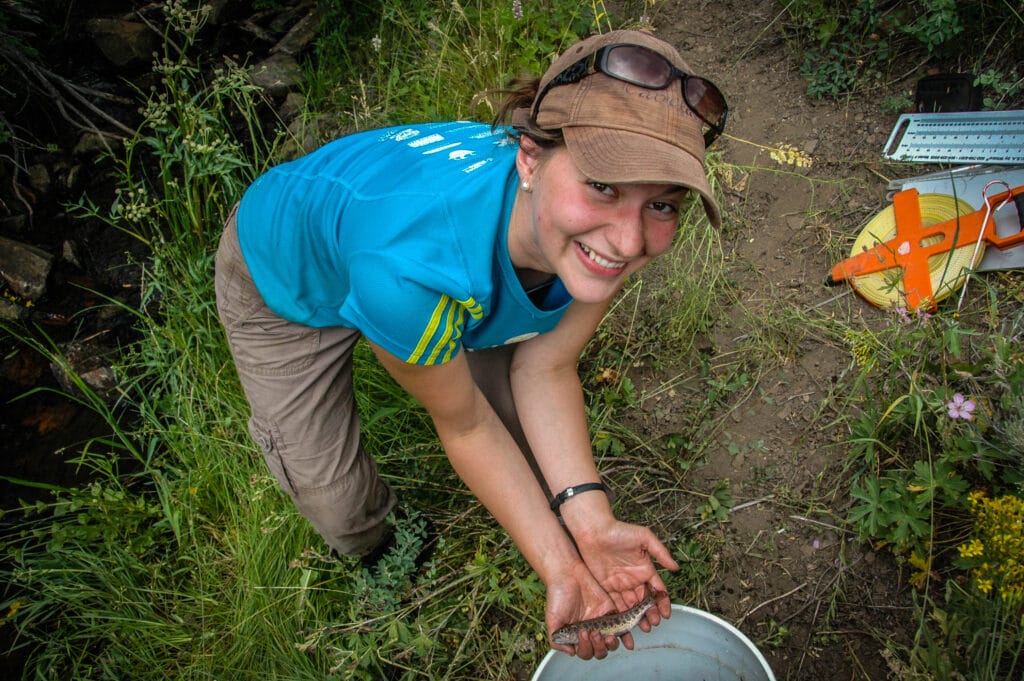
Her sights were originally set on going to medical school while attending the College of Idaho, but while taking the required biology prerequisites, Sarah Baker’s career trajectory took a sharp turn. Her ecology professor gave students extra credit to help place temperature data loggers to help study Redband Trout. Sarah jumped on board and thoroughly enjoyed the fieldwork. During that time, it opened her eyes to the important connection between fisheries science and human health and she was eager to learn more.
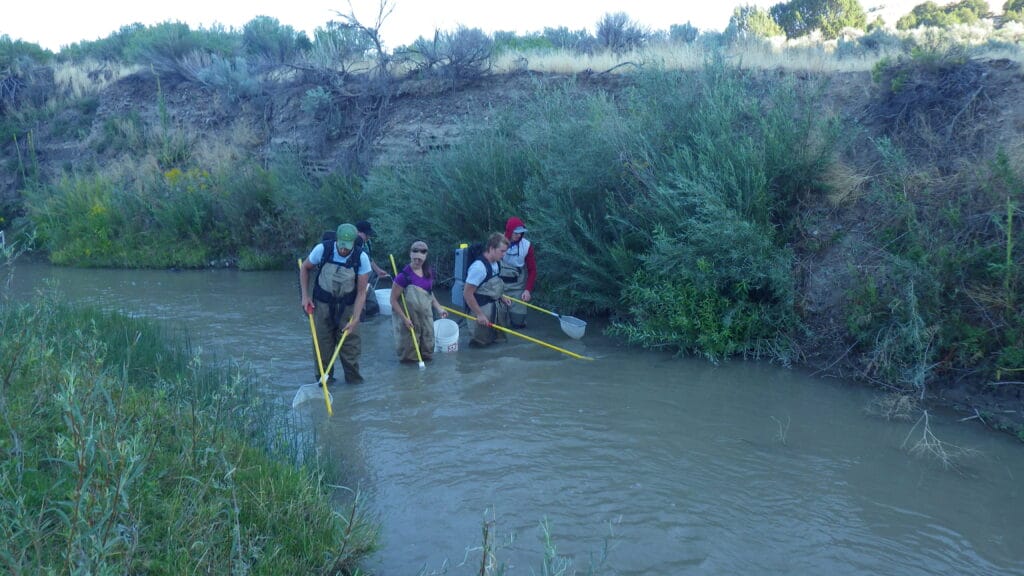
Thanks to some grant funding via that professor’s focus in ichthyology (the study of fish) and his connection with scientists at TU, she secured a half-time TU internship and half-time position working to fulfill the grant requirements. While Sarah felt under gunned working with mostly folks with graduate degrees, she dug in and earned her keep.
Sarah started by reviewing temperature logger data and doing literature reviews to familiarize herself with the data and what TU was working on. The project was to study Dry Creek Redband Trout and help compile stream temperature data on Lahontan Cutthroat Trout streams in Nevada.
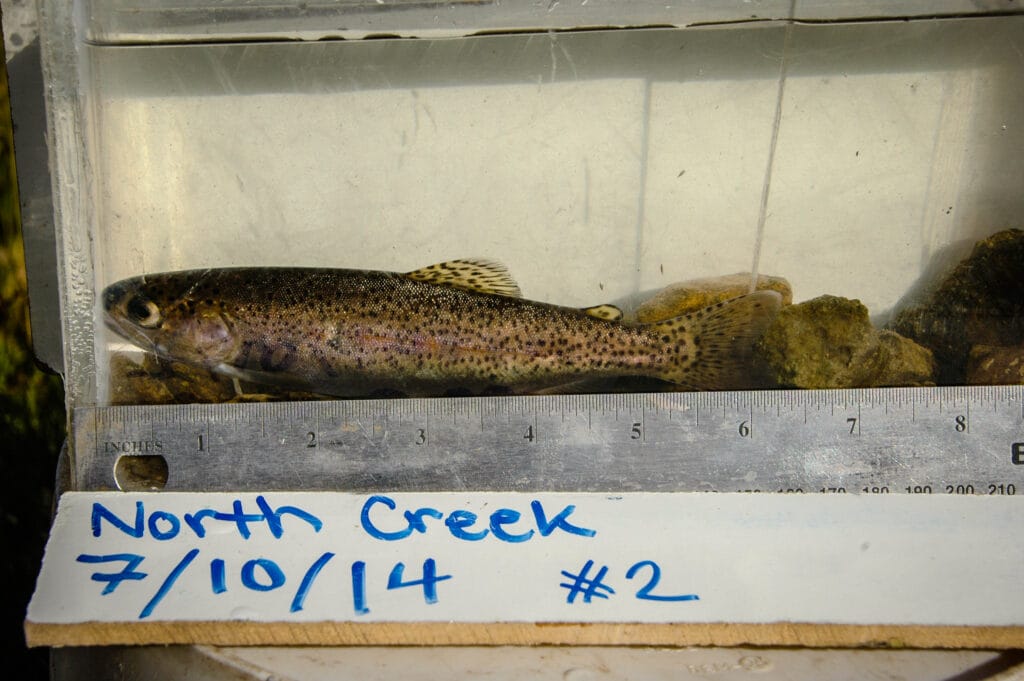
She also got an opportunity to go in the field in Nevada where she not only learned how to change a flat tire during an intense July snowstorm, an unfortunate obstacle driving backroads to find Lahontan Cutthroat Trout, but she became deeply impassioned about this research. They spent days and sometimes weeks in the field hiking in to retrieve the loggers, camping and communing with the fish and her colleagues.
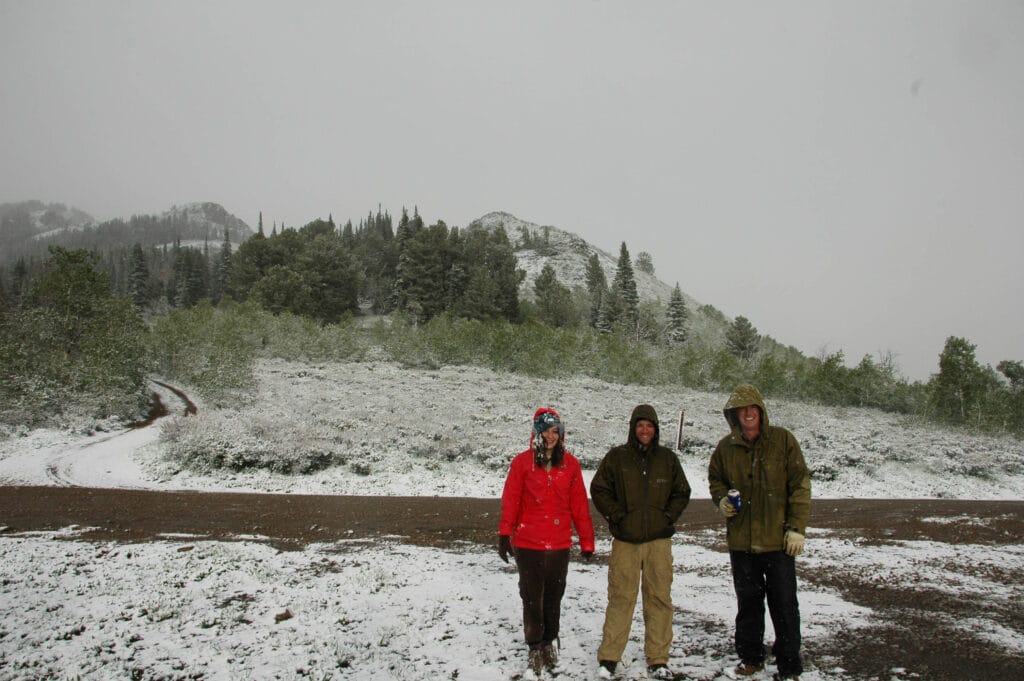
She went back to school for another year, when Dan Dauwalter, TU’s fisheries science director, offered her another summer tech position. This time, they were studying the benefits of cattle exclosures in Goose Creek, Idaho . They sampled fish communities and other aquatic species like sculpin to gain an understanding of their sensitivities to the impacts of cattle on streams. They’d measure stream reach segments using a variety of variables, including to show how habitat diversity offset the negative impact of non-native brook trout on Yellowstone Cutthroat Trout. But mostly, she got to camp all summer and work with other interns, one of whom she married several years later.
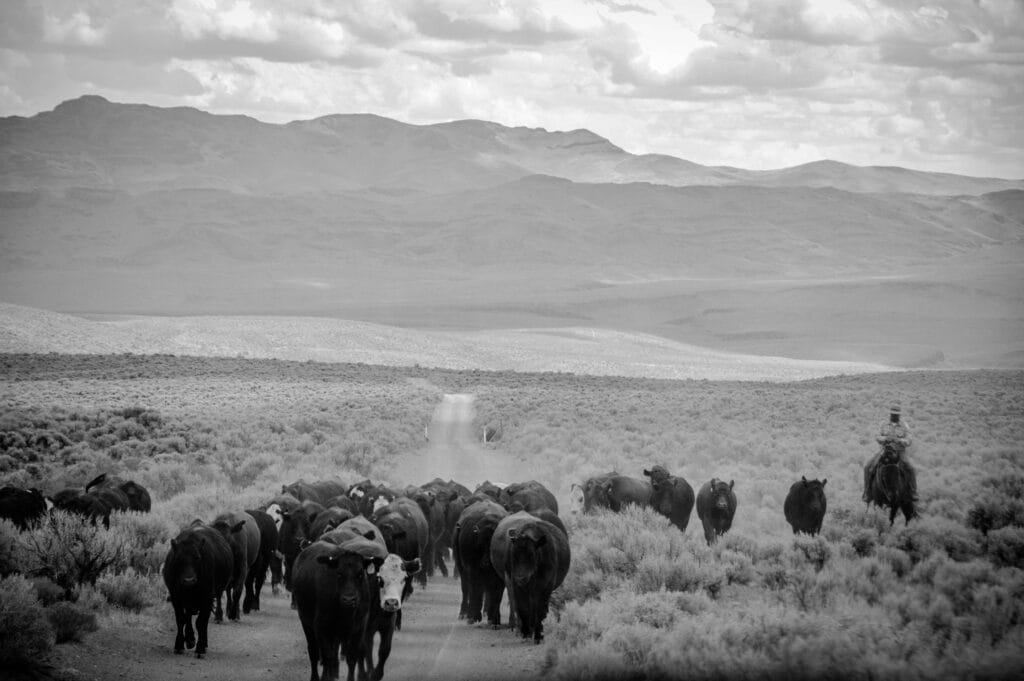
Both TU science team intern opportunities helped Sarah kick off her career in fisheries science. With an understanding of what kinds of research opportunities abound in this field, Sarah took her passions to a Master’s program at Auburn University.
While at Auburn, Sarah worked on the management of stocked trout populations, finding extreme predation from striped bass, which allowed her insight into the management side of the fisheries equation. She worked with the community and other stakeholders on hot-button issues regarding fishing regulations.
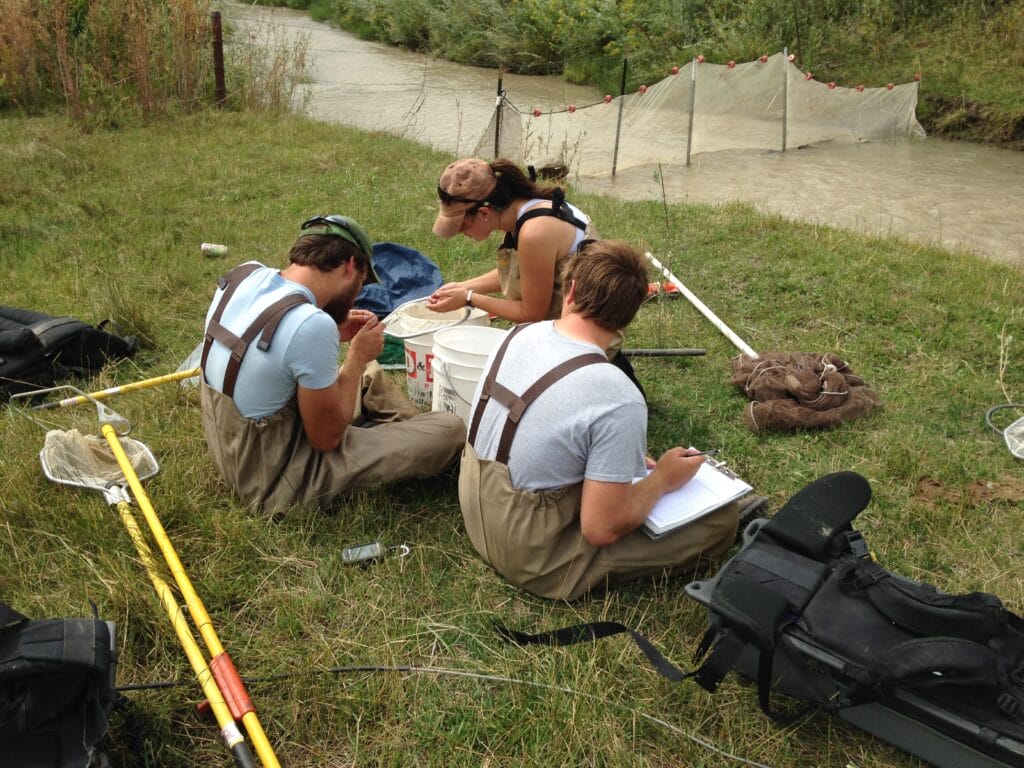
From there, Sarah headed to Georgia to work for the Georgia Department of Natural Resources (GA DNR) Stream Team. They were looking into the abundance and diversity of fish communities below water treatment facilities. Georgia ranks third in the country for the number of fish species in the state, so Sarah increased her knowledge of fish species greatly, when her dream job opened.
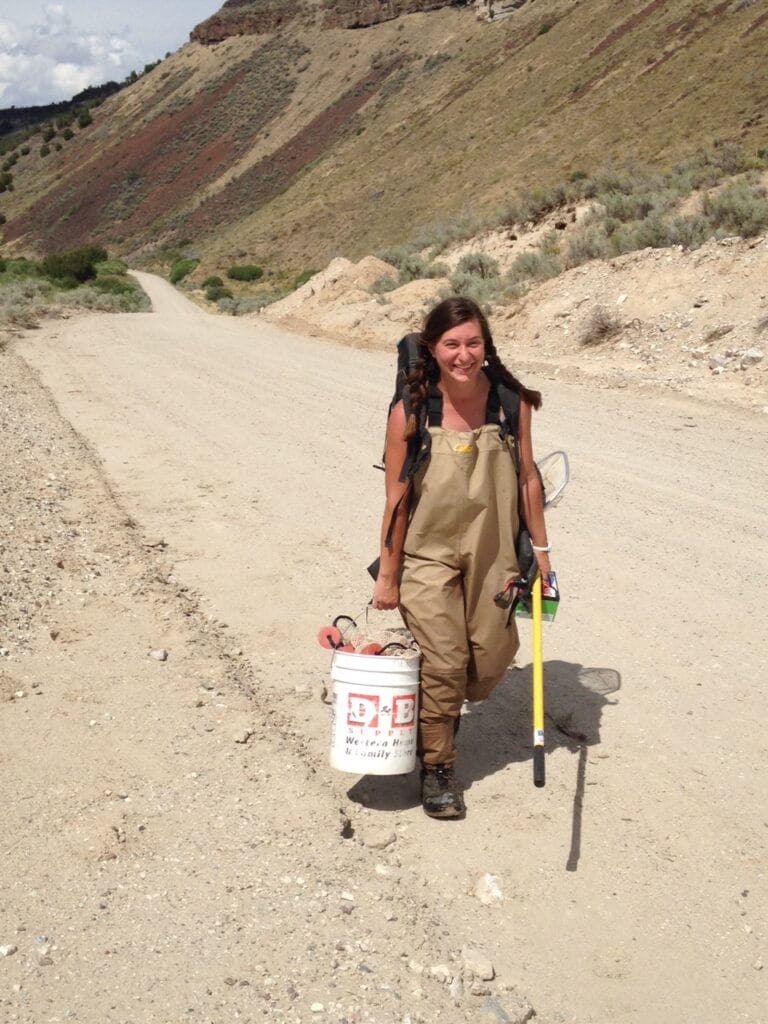
She is now the Trout Biologist for the GA DNR. She navigates between conservation and angler/fisheries management allowing her to interact with the public about issues she is finding in the field. She approaches her work knowing that change in regulation and management can be hard, but by following the science and openly communicating, she can take the steps necessary to save a population.
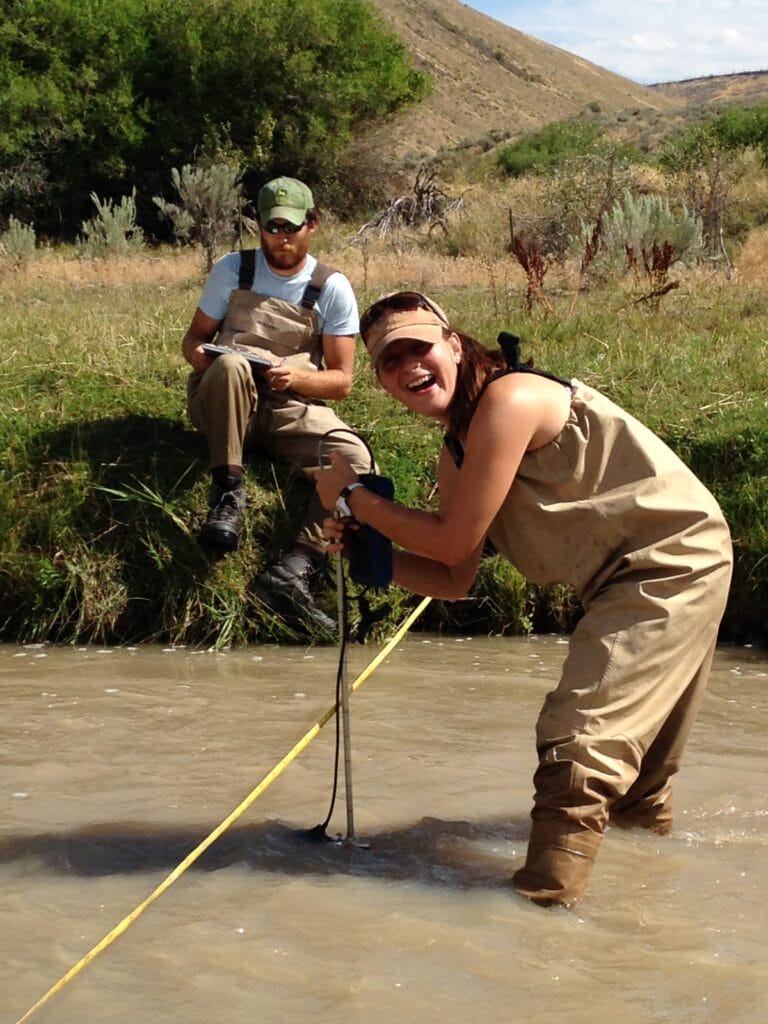
As an avid angler and dedicated scientist, Sarah finds great joy in fishing for Georgia’s native brook trout all while relishing in the beauty of the Appalachians as she comes along old moonshine stills and exploring more of her newfound landscapes and river systems.
This life path might not have come to fruition, nor would she have found her husband, without the benefit of two summer internships with TU’s science team. She thanks TU for the opportunity for expanding her career path and giving her the skills to do so to great success.
